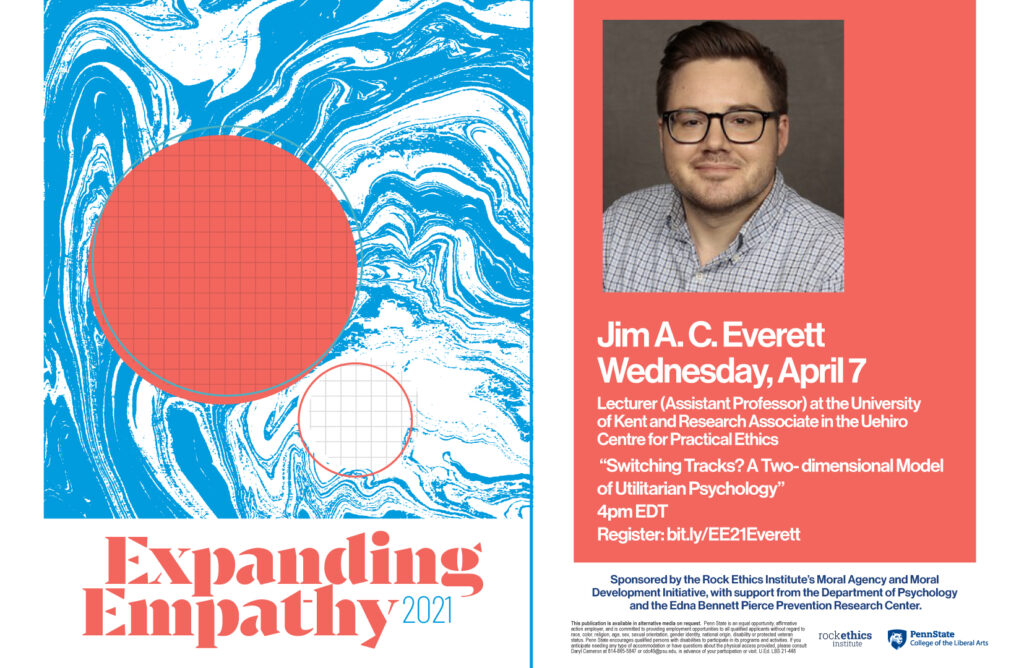Expanding Empathy Lecture Series: Jim A.C. Everett
Switching Tracks?
A Two-Dimensional Model of Utilitarian Psychology
Abstract: A great deal of work in moral psychology has used sacrificial trolley-style dilemmas to shed light on the psychological processes and individual differences associated with “utilitarianism”. Such work has yielded important insight into our understanding of instrumental harm, but there are other – more prototypical – ways in which utilitarianism, as an ethical theory, departs from common-sense moral intuitions. While utilitarianism permits harming innocent individuals when this maximises aggregate utility (instrumental harm), it also tells us to treat with equal importance the interests of all individuals affected, without giving priority to oneself or those to whom one is especially close (impartial beneficence). While more fundamental to the utilitarian ideal, such impartial beneficence has received scant empirical attention. I will present work showing that these dimensions are not merely conceptually distinct but empirically distinct, presenting research documenting distinct patterns of individual differences, evidence they are underpinned by different processes, and work (including from a large scale international study in the COVID-19 pandemic) showing they have distinct consequences for social evaluation. If we wish to understand proto-utilitarian psychology – and especially if we want to draw normative conclusions from such work – is crucial to adopt a multidimensional approach, looking at both instrumental harm and impartial beneficence.
Jim A.C. Everett is a lecturer (assistant professor) at the University of Kent, specializing in moral judgment, perceptions of moral character, and parochial altruism. Dr. Everett completed his BA, MSc, and D.Phil at the University of Oxford, before receiving a Fulbright Fellowship to work at Harvard University, and a Marie-Sklodowska-Curie Postdoctoral Fellowship to work at Leiden University.
Dr. Everett’s work is deeply interdisciplinary, and alongside traditional social psychological approaches, he draws from philosophy, evolutionary theory, and behavioral economics. In his work, he investigates topics such as how we incorporate (im)partiality into our moral judgments; how we infer character from moral judgments and why this is important; how we think about the moral worth of animals; how our moral beliefs influence our understanding of free will and determinism; how morality is central to perceptions of personal and social identity; and how group processes shape moral judgment and vice versa.

